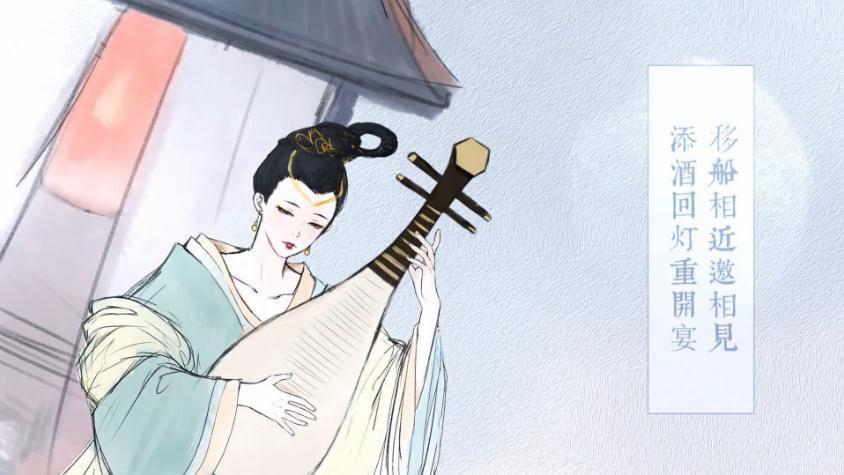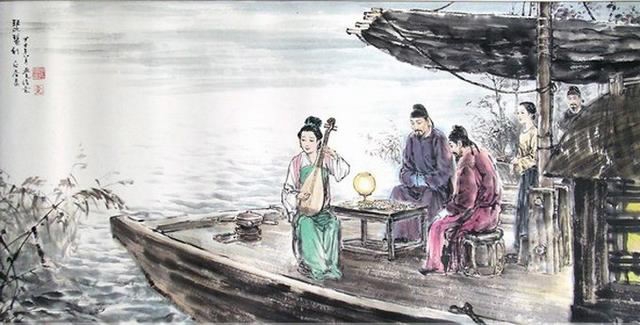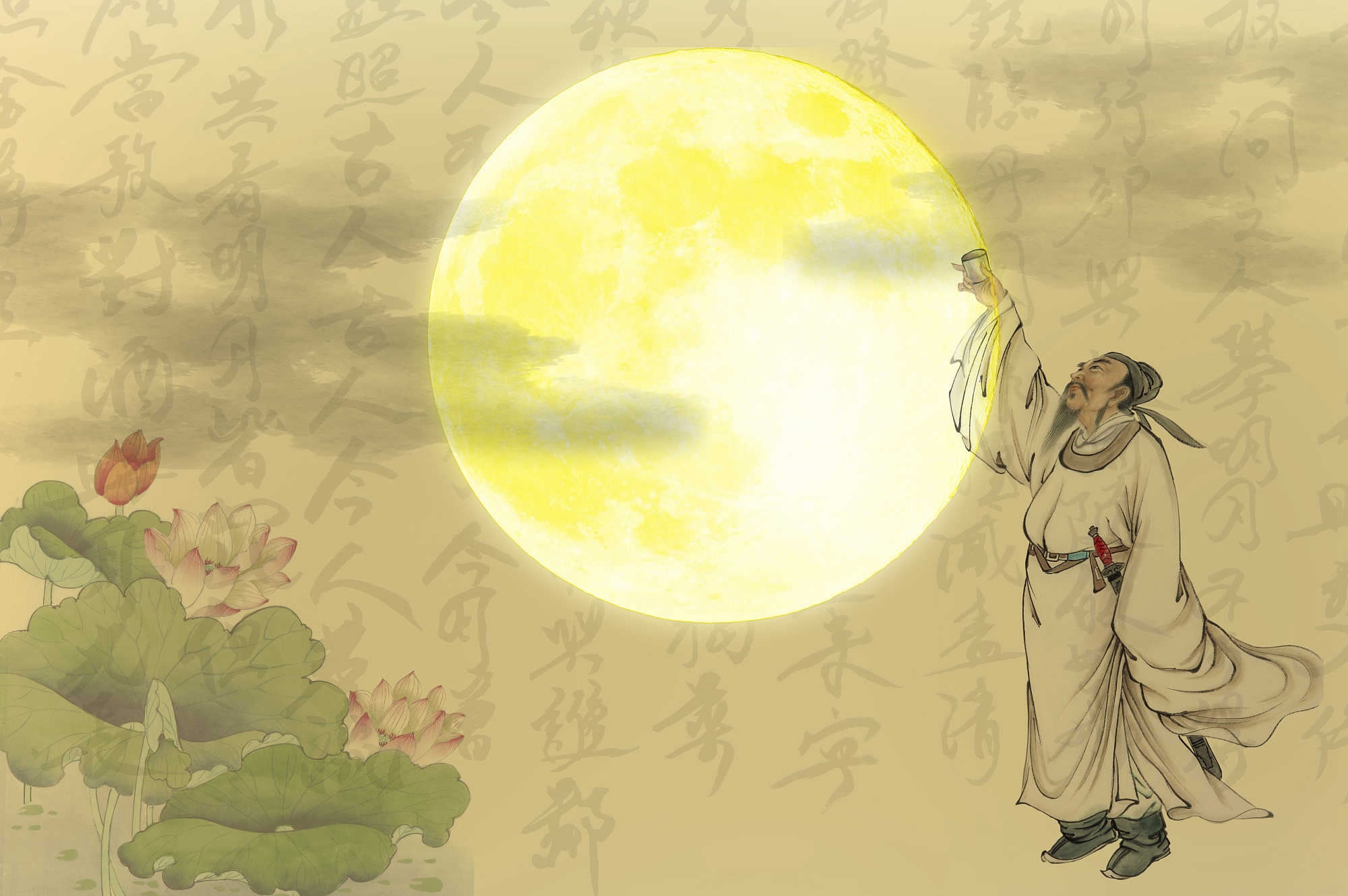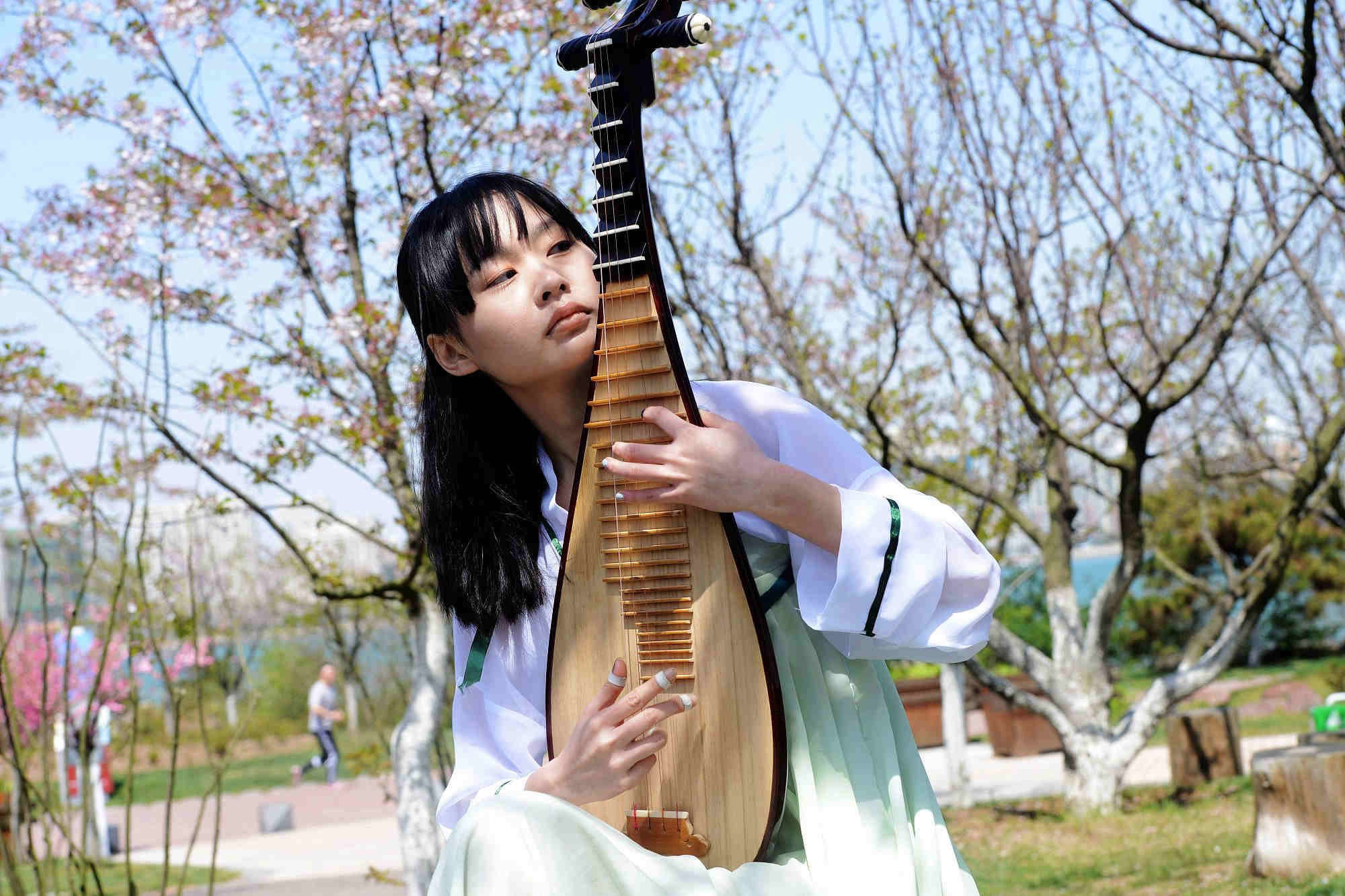
Culture & Sports
15:39, 06-May-2017
Chinese younger generation rediscovers ancient poem's roots in music

Classics never go out of date.
A piece of ancient Chinese poetry, which was written about 1,200 years ago, has recently become an online sensation among teenagers, after two young musicians composed a song for it.
Two days after a namesake song of the household ancient Chinese poem "Song of a Pipa Player" was posted on Bilibili, a popular video sharing website among the younger generation, it has already earned over 20,000 hits and some 1,300 comments.

Traditional Chinese painting based on the scene depicted in Bai Juyi's poem "Song of a Pipa Player". /Tencent Photo
Traditional Chinese painting based on the scene depicted in Bai Juyi's poem "Song of a Pipa Player". /Tencent Photo
Many teenagers liked and shared the five-minute song, saying that they finally found the "correct way" to recite the ancient Chinese poems.
The poem "Song of a Pipa Player" was written by Bai Juyi, a Chinese poet of the Tang Dynasty (618-907). Consisting of over 600 characters, the poem is on the high school syllabus across China and is a must for the students to recite.
The composers of the song, named Qiran and Shenmiren online, are both online musicians. Qiran said he has been thinking of composing songs based on ancient poems since high school years. "I hated reciting poems during that time, so I made up some melodies to help, and it really helped," said Qiran.

Ancient Chinese poet writing poems. /VCG Photo
Ancient Chinese poet writing poems. /VCG Photo
Ancient Chinese poems' musical roots
However, the Chinese people's passion for the poems as lyrics of songs is by no means accidental. The ancient Chinese poems could find their roots in music.
Tracing its origin, the ancient Chinese poems evolved from folklore. The Classic of Poetry, which is considered as the oldest existing collection of Chinese poetry, is said to be comprised of folk songs dating from the 11th to the 7th centuries BC.
The poem, "Song of a Pipa Player", was written in a Yuefu style, the name of which is derived from an ancient organization named "Music Bureau".
Poet Bai Juyi's works were widely welcomed even in his age for their unaffected and rhythmical style. Many singers at that time preferred to compose music for his poems and sing them out.

A Chinese student playing a Pipa, a Chinese plucked string instrument. /VCG Photo
A Chinese student playing a Pipa, a Chinese plucked string instrument. /VCG Photo
China has seen a rising tendency in rediscovering its traditional culture in recent years, especially among the younger generation. Since the beginning of the year, many variety shows featuring traditional culture have gone viral on China's social network Sina Weibo.
A number of original songs, videos and animations based on the ancient culture have increasingly attracted people's attention in recent years, and most of their composers were born in the 1980s and 1990s.
Qiran and Shenmiren, composers of the "Song of a Pipa Player", said their studio is planning to compose songs for most of the ancient poems and prose selected on the high school text books.
"It is a great pleasure to see so many high school students enjoying the song. If it helps them learn and recite the poems, we will continue to compose for sure," said Qiran. "We hope that after listening to the whole album, they will get full marks in the Chinese examination," he joked.
5km

SITEMAP
Copyright © 2018 CGTN. Beijing ICP prepared NO.16065310-3
Copyright © 2018 CGTN. Beijing ICP prepared NO.16065310-3